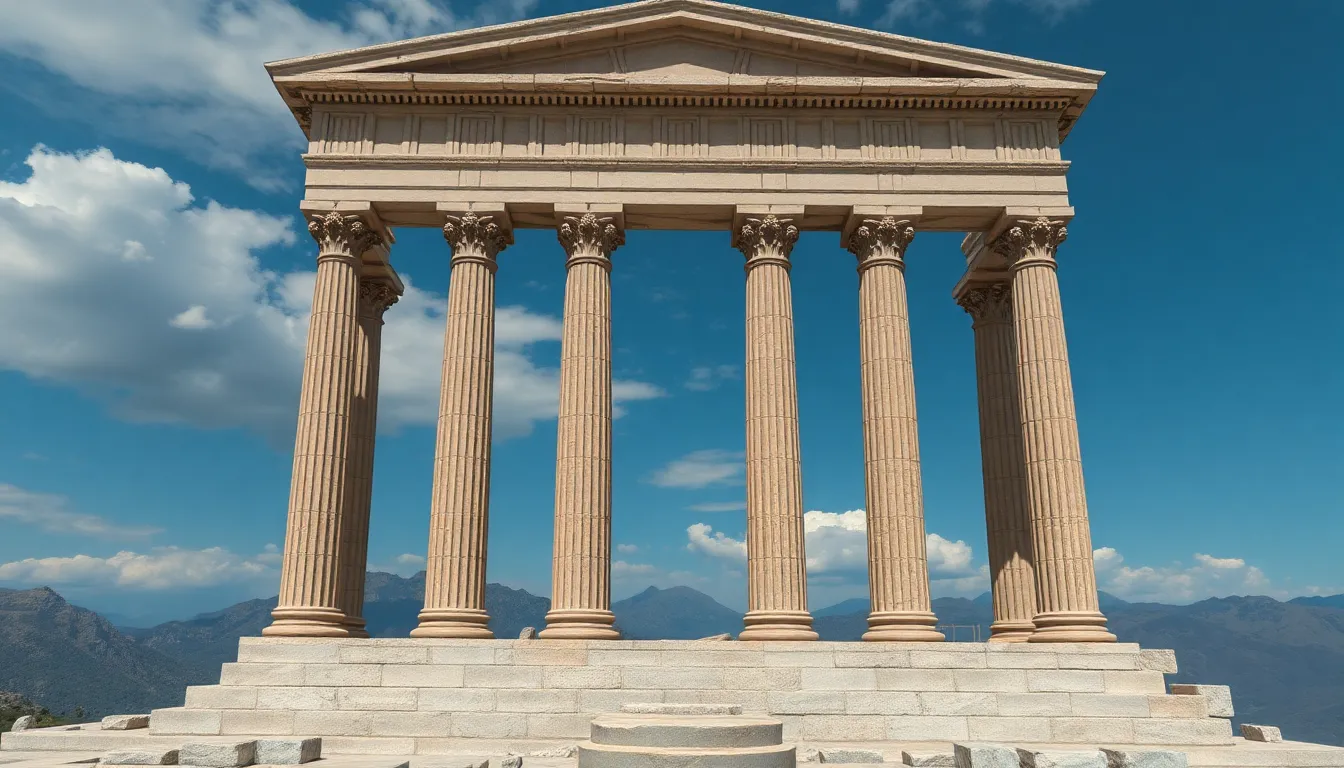The Secrets of Delphi: What Pythia Knew About the Future
I. Introduction
The ancient sanctuary of Delphi, nestled on the slopes of Mount Parnassus in Greece, was one of the most significant religious sites of the ancient world. Renowned for its oracle, the Oracle of Delphi became a pivotal institution, where individuals and city-states sought divine guidance on various matters from personal decisions to significant political actions.
At the heart of this prophetic tradition was Pythia, the priestess of Apollo, who served as the oracle. Known for her enigmatic and often cryptic prophecies, Pythia became a symbol of divine wisdom and mystery. This article aims to unveil the secrets behind Pythia’s prophecies, exploring the historical context, the nature of her insights, and the enduring fascination with her legacy.
II. Historical Context of the Oracle of Delphi
The Oracle of Delphi was established in the 8th century BCE and quickly grew to become a central institution in ancient Greek society. As the medium through which Apollo spoke, the oracle provided counsel to individuals and city-states alike, influencing decisions on wars, colonization, and religious practices.
Throughout its history, several key events and figures became intertwined with Delphi:
- The founding myth involving the slaying of the serpent Python by Apollo, which established his dominance over the site.
- The establishment of the Pythian Games, a precursor to the Olympic Games, which included athletic competitions and artistic performances.
- Influential figures such as Croesus of Lydia and Alexander the Great, who sought Pythia’s wisdom before embarking on significant ventures.
Delphi was not only a religious site but also a cultural hub where art, philosophy, and politics converged. The oracle’s significance extended beyond Greece, as delegations from various regions sought prophecies, reflecting the oracle’s status as a beacon of divine insight.
III. The Nature of Pythia’s Prophecies
Pythia’s prophecies were delivered in a highly ritualized manner. The process typically involved the following steps:
- Preparation through purification rituals, which included fasting and bathing in the sacred waters of the Castalian spring.
- Offering sacrifices to Apollo, often in the form of sheep or goats, to gain favor.
- The priestess entering a trance-like state, believed to be induced by inhaling vapors from a chasm in the earth.
Once in this altered state, Pythia would utter her prophecies, often in a cryptic form, which were then interpreted by priests. The ambiguous nature of these messages meant that they could be understood in multiple ways, allowing the oracle to maintain a level of flexibility in her predictions.
Interpreting Pythia’s messages required a deep understanding of mythology, culture, and current events, often leading to various interpretations that could suit the needs of those seeking guidance.
IV. The Science Behind the Oracle
Modern scholars have sought to understand the phenomena surrounding the Oracle of Delphi through scientific inquiry. Key considerations include:
- Geological studies revealing the presence of tectonic faults near Delphi, which may have released ethylene gas, potentially contributing to Pythia’s trance-like state.
- Environmental factors, such as the unique geography and climate of the region, which fostered a sense of sacredness and mystery.
- Psychological perspectives that explore the nature of altered states of consciousness and their potential effects on perception and prophecy.
These scientific explorations do not negate the spiritual significance of the oracle but rather provide a framework through which to understand how natural phenomena could have interacted with ancient beliefs.
V. Famous Prophecies and Their Impact
Pythia’s prophecies have left an indelible mark on history, with several notable predictions influencing significant events:
- The warning to Croesus that he would destroy a great empire, which ultimately led to his downfall when he misinterpreted the prophecy.
- The prophecy given to the Spartans before the Battle of Thermopylae, which inspired confidence despite the overwhelming Persian forces.
- Alexander the Great’s consultation with the oracle before his conquests, receiving ambiguous affirmations that fueled his ambition.
Each of these instances highlights the profound impact of Pythia’s prophecies on historical trajectories, shaping decisions that reverberated through time.
VI. The Decline of the Oracle
Despite its prominence, the Oracle of Delphi began to decline in influence during the late Roman period. Several factors contributed to this decline:
- The rise of Christianity, which began to supplant the old pagan traditions and diminish the authority of the oracle.
- Political changes, including the Roman conquest of Greece and the subsequent shift in religious practices and beliefs.
- Natural disasters and economic decline that affected the sanctuary’s operations and its ability to draw visitors.
Today, the legacy of the Oracle of Delphi continues to resonate within the context of modern spirituality, inviting reflection on the wisdom of the ancients and the quest for understanding the divine.
VII. The Enduring Fascination with Delphi
Delphi’s allure persists in contemporary culture, manifested in various forms:
- Literary works that explore themes of prophecy and the human condition, often referencing Delphi as a symbol of wisdom.
- Artistic representations that capture the mystical essence of the oracle and its priestess, Pythia.
- Modern interpretations of oracles, where individuals seek guidance through various means, reflecting a continued interest in the unknown.
Delphi’s secrets continue to inspire curiosity, prompting discussions on the nature of fate, free will, and the human desire to glimpse the future.
VIII. Conclusion
In summation, the exploration of Pythia and the Oracle of Delphi reveals a complex interplay of history, culture, and spirituality. From its establishment as a prophetic center to its decline, Delphi serves as a reminder of humanity’s quest for knowledge and understanding of the future.
Understanding the insights of the ancients enriches our perspective on contemporary issues, highlighting the timeless nature of wisdom. As we navigate an uncertain world, the lessons from Delphi remind us of the enduring search for truth and guidance amidst the mysteries of existence.




